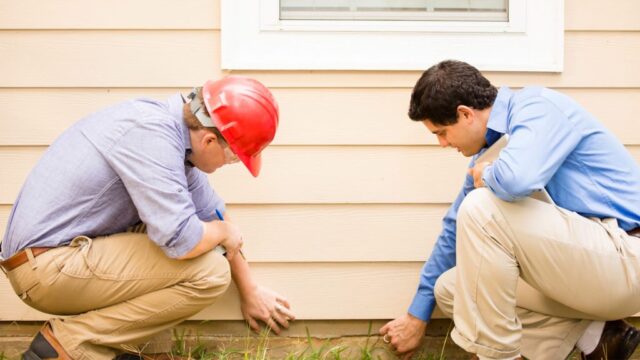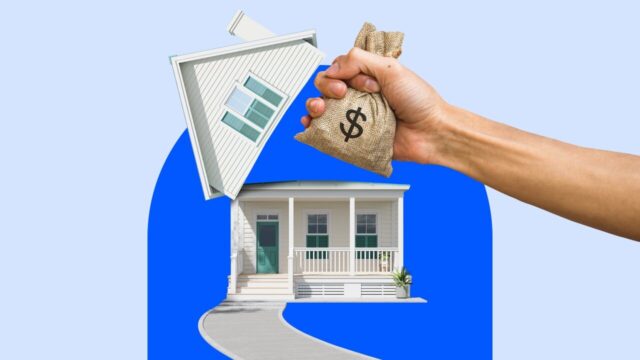
The first step when buying your first home is deciding if you are ready. This is an enormous commitment financially and personally. Make sure you plan to stay in the area for several years. Also consider if you have saved enough for a down payment. Many lenders want at least 3.5% down, though some first-time buyer programs allow less.
Get Pre-Approved for a Mortgage
Work with a mortgage broker to get pre-approved for a home loan before house hunting. The experts at Mortgage Maestro explain that the pre-approval letter states the maximum you can borrow based on your finances and credit. It shows sellers you are serious.
Gather documents like tax returns, pay stubs, and bank statements for the mortgage broker. Run your credit report too and check for errors.

Shop for a Real Estate Agent
A real estate agent will help you find homes and make offers. Ask friends and family for recommendations. Narrow down the list by researching agents online or interviewing a few.
Ensure they specialize in the neighborhoods you prefer. New agents can be very capable too. Clarify upfront who will pay the agent’s fees at closing.
Research Neighborhoods and Home Styles
Drive around areas you like and research online. Consider proximity to jobs, schools, parks, and shopping. Also decide on what size and style home fits your needs.
Tour some open houses and educate yourself on local home values so you know what is affordable with your budget. The agent can pull up listings once you get more serious about particular areas.

View Homes In-Person
As you find homes in your price range, schedule showings right away before they get offers. Take lots of notes and photos at each one. Pay attention to floor plan, finishes, mechanical systems, outlets and fixtures, and upgrades needed.
Also note details like room sizes, storage space, yard size, garages, view, noise near busy streets, and flood zone status. Ask your agent for info on taxes, HOA rules and utility costs.
Make an Offer
When you find ‘the one’, your agent will submit an offer contract with your proposed price and desired closing date. The offer may also propose inspections, repairs, and fixtures to stay.
Expect some back-and-forth counteroffers as you negotiate a final sale price and terms agreeable to both parties. Stay in close contact with your real estate agent and mortgage broker during this stressful period.

Complete Inspections and Appraisal
After an accepted offer, you enter the closing period, which takes 30-60+ days before you get the keys. During this time, a professional home inspector looks over every aspect of the property and you can request repairs from the sellers as per the inspection findings.
Your lender will also order an appraisal to confirm the home equals or exceeds the loan amount, so they don’t risk overpaying.
Budget for Ongoing Homeownership Expenses
When purchasing your first home, it’s crucial to not only budget for the initial costs but also for the ongoing expenses associated with homeownership. These include property taxes, homeowner’s insurance, utilities, and maintenance costs.
Property taxes can vary significantly based on location and home value, while homeowner’s insurance rates depend on the property’s size, condition, and location. Utilities like water, electricity, and gas can add a substantial amount to monthly expenses.
Regular maintenance is also essential to keep the home in good condition and prevent costly repairs in the future. Planning for these expenses ensures financial stability and protects your investment in the long run.

Explore Mortgage Financing Options
Understanding the various mortgage financing options available is key to making an informed decision when buying a home. Fixed-rate mortgages offer the security of a constant interest rate over the life of the loan, making financial planning easier.
Adjustable-rate mortgages might start with lower rates but can fluctuate over time, potentially increasing monthly payments. Government-backed loans, such as FHA or VA loans, can be beneficial for those who qualify, offering lower down payments or more lenient credit requirements.
Researching these options, considering your financial situation, and discussing with a mortgage advisor will help you select the best mortgage type that suits your long-term financial goals and homeownership plans.
Build an Emergency Fund for Home Repairs
Homeownership comes with the responsibility of maintenance and unexpected repairs. An emergency fund specifically designated for home repairs can safeguard against financial strain when sudden issues arise, such as plumbing leaks, roof damage, or HVAC failures.
Experts recommend saving at least 1% of your home’s value annually for maintenance and repairs. This fund ensures you’re prepared for the inevitable wear and tear, allowing you to address issues promptly and maintain your home’s value.
Starting this fund early and contributing regularly can provide peace of mind and financial security, ensuring you can enjoy your home without the stress of unanticipated repair costs.

Consider a Home Warranty for Protection
For first-time homeowners, a home warranty can be a valuable investment, offering protection against the high costs of repairing or replacing major systems and appliances that fail due to normal wear and tear.
Unlike homeowner’s insurance, which covers damage from events like fires or natural disasters, a home warranty covers items such as your HVAC system, electrical systems, plumbing, and major appliances like refrigerators and ovens. When a covered item breaks down, the warranty company facilitates repairs or replacements, often for just a service call fee.
Carefully review what each warranty plan covers and consider if the annual cost aligns with your needs, as this can be an effective way to manage home maintenance costs and reduce financial risk.
Final Walkthrough
A final walkthrough of the home happens a couple of days before closing. Ensure the sellers have moved out fully and completed any agreed repairs. Also confirm items included with the sale price like appliances, systems and fixtures are all still there in working order. Bring your agent and inspector if desired.

Closing Time
Closing day is when you sign all the final paperwork and receive the property keys. Your down payment and closing costs are also due. Closing costs run 3-6% of the total home price, including origination fees, points paid to lower the interest rate, title searches and insurance fees, survey fees, taxes due and legal fees.
With careful planning and preparation, buying your first home can be an exciting journey leading you to the keys of your new property and the start of this next chapter in your life.









